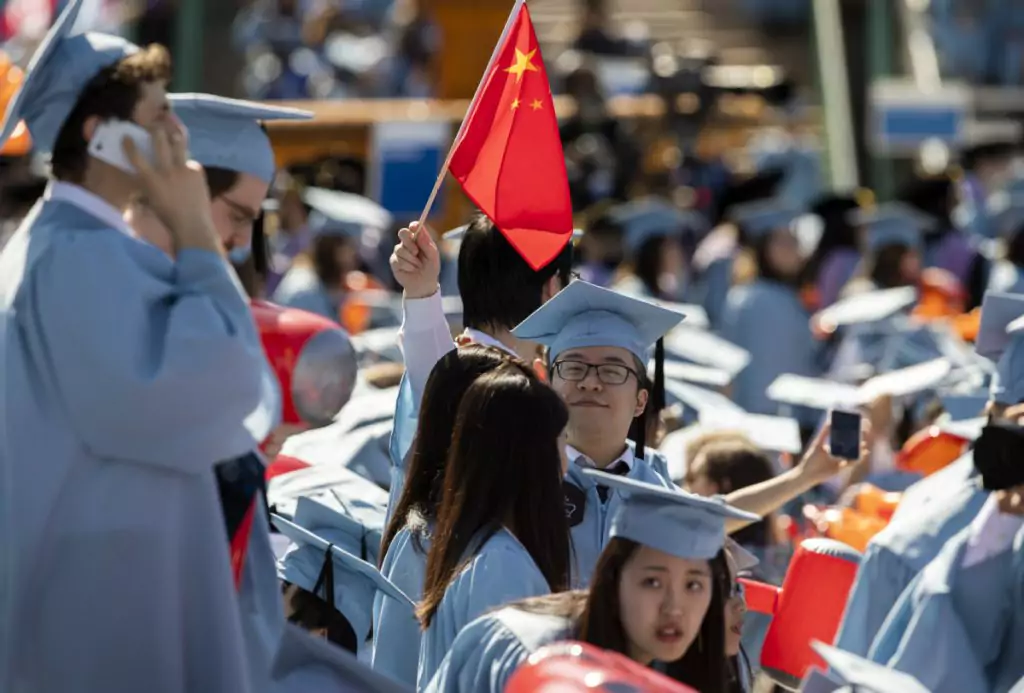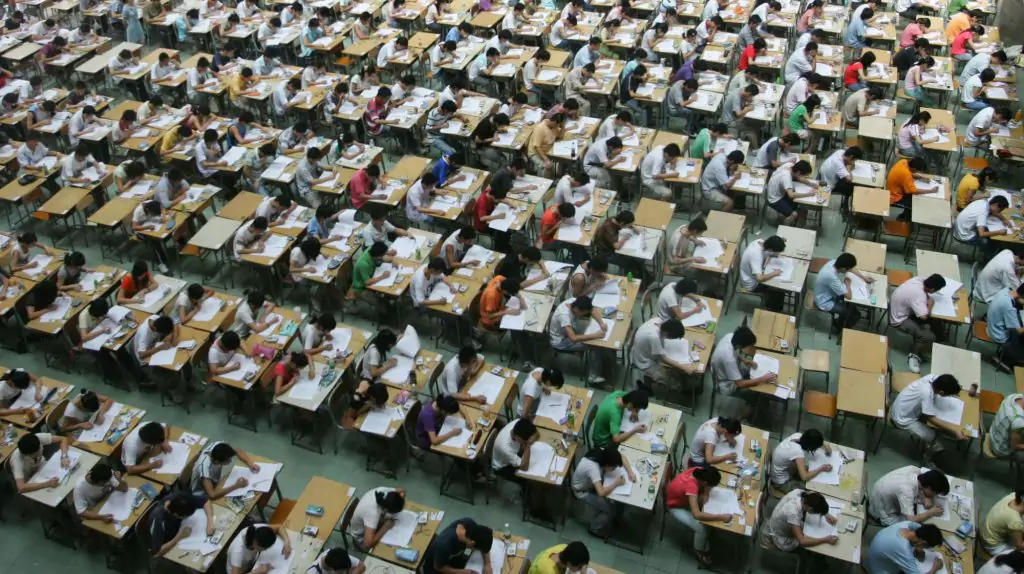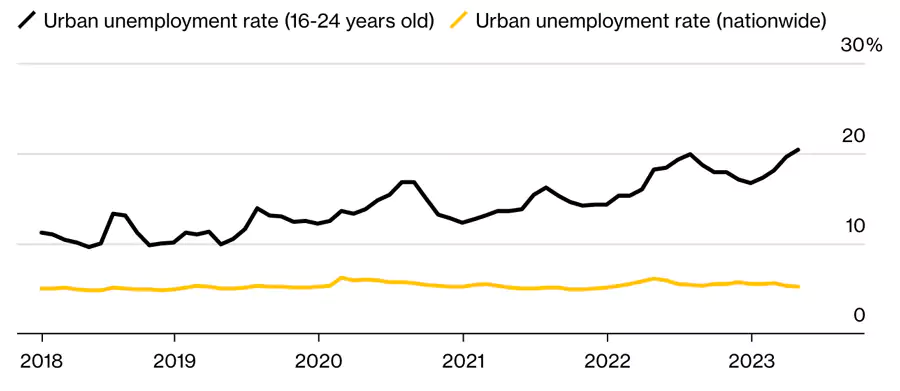
As reported by Jessie Yeung on CNN, a staggering number of high school students across China embarked on the annual “gaokao” college entrance exam last Wednesday. This comes despite warnings of an increasingly dismal job market, which has been overshadowed by the soaring youth unemployment rates.

✅ AI Essay Writer ✅ AI Detector ✅ Plagchecker ✅ Paraphraser
✅ Summarizer ✅ Citation Generator
Key takeaways:
- An unprecedented 12.91 million students in China are attempting the nation’s grueling “gaokao” college entrance exam.
- The surge in exam candidates coincides with a rise in youth unemployment, raising concerns about the future job market.
- Critics argue that the high level of competition is eroding the value of a college degree amidst economic uncertainty and a lack of opportunities.
A Test of Destiny Amidst Economic Uncertainty
The gaokao exam, the pathway for most Chinese students to the country’s elite universities, is notoriously tough. Unlike the SAT, which American students can attempt multiple times, Chinese students typically only have one opportunity to prove their worth. This year, the examination landscape became even more competitive, with nearly 980,000 additional students entering the fray, bringing the total to around 13 million registered candidates.
This increase is happening against a backdrop of rising youth unemployment rates, adding more weight to the gaokao’s already substantial significance. With the country’s economy facing uncertainties, young people increasingly view the exam as a crucial turning point that could decide their future career trajectories.

Many students sought solace and support from cultural traditions. Photos from the week showed students lighting incense and praying for good results at temples while some teachers distributed zongzi (rice dumplings) for luck. Chinese social media platforms were also flooded with messages of encouragement and good luck wishes.
Authorities Intensify Anti-Cheating Measures
In response to the surge in candidates, authorities implemented various measures to keep the examination environment as serene as possible. Rules were put in place to prohibit cars from honking near exam sites, and nearby restaurants were ordered to cease operations during the exam period.
Furthermore, the authorities bolstered their anti-cheating security measures to maintain the exam’s integrity. Some cities have turned to facial recognition technology to identify “surrogate test takers” hired to take the exam for someone else. They have also dialed back signal transmission power near exam sites to stymie electronic cheating methods. The state-run Global Times reported that these measures are part of a concerted effort to ensure that all students are given a fair and equal opportunity to secure their academic future.
A Degree in Decline
The exponential rise in the number of gaokao candidates has sparked concerns among students who are already wrestling with an uncertain economy and dwindling opportunities. They fear that the surge in competition could lead to an oversaturation of degree holders, subsequently devaluing a college degree.
The public debate on the worth of a college degree was stirred further on social media platforms. Many pointed out the stark contrast between the number of gaokao candidates and the country’s declining birth rate, which fell to a record low of 9.56 million in 2022. Despite the government’s attempts to boost fertility rates, the number of test-takers and potential job competitors continues to climb, casting a long shadow over the prospects of college degree holders.
Job Market Woes
Despite the fact that China’s youth are more educated than ever, a growing mismatch between their expectations and opportunities persists. Urban unemployment has surged after three years of pandemic-induced restrictions impacting small businesses.
The private sector, which provides over 80% of jobs in China, has also been affected by regulatory crackdowns on the internet, real estate, and education companies. The urban unemployment rate for 16- to 24-year-olds reached a record high of 20.4% in April, and this could potentially increase further as a record 11.6 million college students are set to graduate this year.

In light of these challenges, provincial governments have encouraged unemployed young people to find work in the countryside. However, this proposal has been met with resistance from young graduates, many of whom feel entrapped by their education and are torn between pursuing a white-collar career or settling for a blue-collar job they had aimed to avoid through a college degree.
Related stories:
Exposed: How AI Is Transforming Cheating and Why Oral Exams Could Be the Ultimate Solution
Interactive Test Prep Strategies: Helping Students Succeed in Assessments and Beyond
The Rise of Competency-Based Education: Measuring Skills Over Time Spent in the Classroom
Follow us on Reddit for more insights and updates.





Comments (0)
Welcome to A*Help comments!
We’re all about debate and discussion at A*Help.
We value the diverse opinions of users, so you may find points of view that you don’t agree with. And that’s cool. However, there are certain things we’re not OK with: attempts to manipulate our data in any way, for example, or the posting of discriminative, offensive, hateful, or disparaging material.